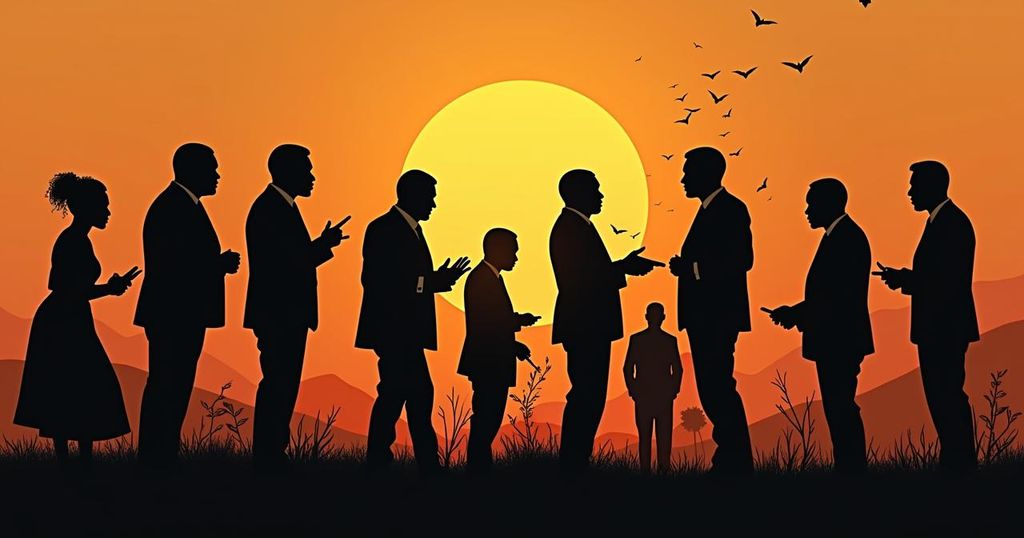Mozambique Elections: A Turning Point in Political Leadership

Mozambique’s upcoming elections are poised to introduce a younger president for the first time since independence in 1975 amid significant public demand for change. Voters are facing critical issues such as armed conflict, economic hardships, and corruption linked to the ruling Frelimo party. Four main candidates, representing both the ruling party and various opposition groups, are vying for leadership, with the outcome expected to reshape Mozambique’s political landscape and address longstanding challenges.
Mozambique’s recent elections have the potential to usher in a significant political shift as voters head to the polls for presidential, parliamentary, and provincial elections on Wednesday. This election is particularly notable because it may result in the country’s first president born after Mozambique gained independence from Portuguese rule in 1975. With a population of 32 million, approximately 17 million citizens are eligible to vote across the 11 provinces. In contrast to the outgoing President Filipe Nyusi of the Mozambique Liberation Front (Frelimo), who is stepping down after eight years, the candidates vying for the presidency represent a spectrum of political ideologies and generational shifts. Nyusi’s presidency has been marred by corruption, most notably the tuna bond scandal, which involved high-profile Frelimo members imprisoned for accepting bribes related to secret loan guarantees. This backdrop of corruption has left voters deeply divided, with younger Mozambicans expressing a desire for change and an end to the longstanding patronage politics associated with Frelimo’s governance. Four candidates are leading the race: 1. Daniel Chapo, 47, a Frelimo member and former provincial governor, is seen as the frontrunner due to his party’s incumbency but faces skepticism from voters associating him with Frelimo’s past misdeeds. 2. Ossufo Momade, 63, the leader of the opposition Mozambican National Resistance (Renamo), is an experienced figure within the political landscape but retains connections to the former civil war context, which some voters see as outdated. 3. Venancio Mondlane, 50, a charismatic former Renamo deputy, draws significant support from younger voters, campaigning as an independent with promises of reform and economic opportunity. 4. Lutero Simango, 64, representing the Democratic Movement of Mozambique (MDM), focuses on job creation through resource processing and industrial development. Key issues at stake in these elections include addressing the ongoing armed conflict in Cabo Delgado, economic challenges due to high unemployment, particularly among youths, and enhancing the country’s resilience to climate-induced crises leading to food shortages. The candidates have pledged to confront these issues head-on, but skepticism remains about their capabilities to effect genuine change given the historical context. The counting of votes will commence immediately after the polls close, with partial results anticipated shortly thereafter. The National Election Commission is expected to announce official results within 15 days, during which political parties may contest any disputes regarding the outcomes.
Mozambique has experienced significant political changes since its independence, and the upcoming election marks a crucial juncture in the country’s history. The governance under Frelimo, which played a vital role in the liberation war, has increasingly been challenged by allegations of corruption and economic mismanagement, particularly highlighted by the tuna bond scandal that undermined public trust. This election not only reflects the aspirations of a younger generation seeking reform but also the historical tensions stemming from the civil war, the legacy of which continues to influence contemporary politics. The rise of candidates like Venancio Mondlane showcases a demand for new ideas and policies, especially focused on development, security, and economic growth.
The elections in Mozambique represent a pivotal moment for the nation, potentially ushering in new leadership following decades of Frelimo dominance. With pressing issues such as armed conflict, economic distress, and climate change at the forefront, the choice of president will have far-reaching implications for the future of governance and public welfare in Mozambique. The engagement of the electorate, particularly the youth, highlights a growing desire for accountability and reform, suggesting a transformative potential that may redefine the country’s political landscape moving forward.
Original Source: www.aljazeera.com






